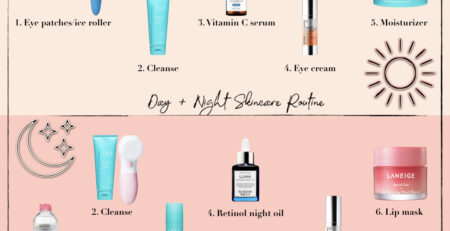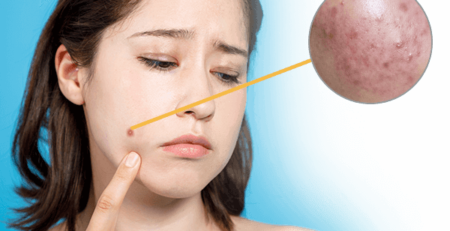Solutions of skin problems
Dry skin: Dry skin is basically for lack of moisture in its outer layer. Keeping dry skin moisturized is important. Whether it is caused by aging, an underlying skin condition, or environmental factors, having dry skin can be uncomfortable and itchy. Following the same skin care routine year-round may not work so well when the humidity drops. Without a change in your skin care, dry air can make fine lines and wrinkles more noticeable. Dry, itchy skin can flake, crack, and even bleed.
In most cases, dry skin responds well to lifestyle measures, such as using moisturizers and avoiding long, hot showers and baths. Sometimes dry skin leads to dermatitis, which causes red, itchy skin. In these cases, treatment may include hydrocortisone-containing lotions. If your skin cracks open, your doctor may prescribe wet dressings to help prevent infection.
The following measures can help keep your skin moist and healthy:
- Moisturize. Moisturizers provide a seal over your skin to keep water from escaping. Apply moisturizer several times a day and after bathing.
- Use warm water and limit bath time. Long showers or baths and hot water remove oils from your skin. Limit your bath or shower to five to 10 minutes.
- Avoid harsh, drying soaps. It’s best to use cleansing creams or gentle skin cleansers and bath or shower gels with added moisturizers. Choose mild soaps that have added oils and fats. Avoid deodorant and antibacterial detergents, fragrance, and alcohol.
- Apply moisturizers immediately after bathing. Gently pat your skin dry with a towel so that some moisture remains. Within a couple of minutes of bathing, apply moisturizing cream or ointment to trap moisture in your skin
Oily skin- Oily skin and acne are challenging to manage. Still, home remedies often reduce symptoms without the use of prescription drugs or expensive skin care regimens. Here are some remedies for oily skin you can try at home.
1. Wash your face– It seems obvious, but many people with oily skin don’t wash their face daily. If your skin’s oily, you should wash your face twice a day, but don’t overdo it. Avoid harsh soaps or detergents. Use a gentle soap such as glycerin soap instead.
2. Use a facial mask- Certain facial masks may be beneficial for treating oily skin. These may contain ingredients such as:
- Clay: Masks containing minerals like smectite or bentonite can absorb oils and reduce skin shininess and sebum levels without irritating the skin. Use them only occasionally to prevent the skin drying out, and apply a gentle moisturizer afterward.
- Honey: Natural raw honey has antibacterial and antiseptic qualities. A 10-minute honey face mask may reduce acne and oily skin while keeping the skin soft.
3. Apply moisturizers: While many people with oily skin steer clear of moisturizers for fear that their skin will look greasier, using the right moisturizers can benefit this type of skin. For people with very oily skin, an oil-free moisturizer could help keep the skin moist and protected, without it feeling greasy.
Acne skin- Moderation and regularity are good things, but not everyone can sleep eight hours, eat three healthy meals per day, and drink plenty of water a day. Probably the most useful lifestyle changes one can make is to never to pick or squeeze pimples. Playing with or popping pimples, no matter how careful and clean one is, nearly always makes bumps stay redder and bumpier longer. People often refer to redness as “scarring,” but fortunately, it usually isn’t permanent. It’s just a mark that takes months to fade if left entirely alone.
Cleansing and skin care
Despite what one might read in popular style and fashion magazines, there is no magic product or regimen that is right for every person and situation.
- Mild cleansers: Washing once or twice a day with a mild cleansing bar or liquid (for example, Dove, Neutrogena, Basis, Purpose, and Cataphyll are all inexpensive and popular) will keep the skin clean and minimize sensitivity and irritation.
- Exfoliating cleansers and masks: A variety of mild scrubs, exfoliates, and masks can be used. These products may contain salicylic acid in a concentration that makes it a very mild peeling agent. These products remove the outer layer of the skin and thus open pores. Products containing glycolic or alpha hydroxyl acids are also gentle skin exfoliates.
- Reduce excess oil- Use a gentle astringent/toner to wipe away oil. Masks containing sulfur and other ingredients draw out facial oil.
Melasma Skin: Treatment is not always necessary for melasma. If hormonal changes, such as those that occur during pregnancy or while taking birth control pills, have caused melasma, it will fade after delivery or once a person stops taking the pills. For other people, melasma can last for years or even for the rest of their lives. If melasma does not fade over time, a person can seek treatment to help remove or fade the patches.
Treatment options for melasma include:
- Hydroquinone: Doctors often use hydroquinone as the first line of treatment for melasma. Hydroquinone is available as a lotion, cream, or gel. A person can apply the hydroquinone product directly to the patches of skin that are discolored.
- Combined creams: In some cases, a dermatologist may choose to prescribe combination creams that may contain hydroquinone, corticosteroids, and tretinoin in one. These are called triple creams.
If a person has had melasma before, they can try to avoid triggers by:
- limiting sun exposure
- wearing a hat when outside
- using sunscreen
Pores, Wrinkles, Freckles Skin:
Open Pores: We all want to have flawless skin, but shrug it off as wishful thinking. Skin woes are a common problem that all women deal with, and hence, we apply many layers of makeup to get the look we want. Despite makeup, one skin affliction that still surfaces is open pores. Here, we will discuss what open pores are, and what their complications are. Also, we provide you with some home remedies to get rid of these open pores. Several factors can contribute towards the enlargement of pores are- Sun Exposure, Genetics, Age, Excessive Oil Secretion, Hormonal Changes, and Excessive Sweating and so on.
Persistent and unpleasant looking open pores can be treated with home remedies. Here are some home remedies to get rid of open pores:
1. Aloe Vera: Fresh Aloe Vera can be used on open pores, as it will help hydrate the skin and tighten it. This remedy works because aloe Vera cleanses, nourishes and hydrates the skin, and unclogs the pores.
- Apply aloe Vera gel on open pores and massage gently for a few minutes.
- Let the gel stay on your skin for approximately 10 minutes.
- Rinse off with water.
- Repeating this procedure every day will help to shrink your pores, considerably.
2. Apple Cider Vinegar: Apple cider vinegar (ACV) is one of the best-known skin toners available and can tighten pores when used appropriately. Apple cider can tighten skin, reduce inflammation, and cleanse the skin to minimize pores.
- Dilute apple cider vinegar with water, in a 1:1 ratio.
- Dip a ball of cotton in this solution and dab it on your face.
- Let it dry.
- Use this skin toner after wash your face at night.
3. Egg White Mask: A mask made of egg white can help tighten skin and improve its elasticity. The white of eggs can tighten and tone skin, and improve its quality.
- Mix all the ingredients to make a fine paste.
- Apply this paste on your face, spreading it evenly.
- Let it sit on your face for about 30 minutes.
- Rinse with normal water.
- Apply this paste twice a week for best results.
4. Argon Oil: Argon oil is a therapeutic remedy that is great for skin and hair. It also helps tighten pores. Argon oil is rich in Vitamin E and fatty acids that hydrate the skin and give it a glow, diminishing the appearance of large pores.
- Warm the oil droplets between your fingers.
- Apply the oil to your face and massage gently with the tips of your fingers.
- Rinse your face using warm water, after about 30 minutes.
- Repeat this every night before going to bed, for glowing skin.
5. Cucumber: Cucumber is a natural skin hydrant; the high water content of cucumber helps hydrate the skin and tighten it. It is a good remedy for open pores on oily face and skin. Cucumber can delay the ageing process of skin and tightens the pores because of its high water content and antioxidant properties.
- Blend cucumber slices and lemon juice together to form a pulp.
- Apply this pulp on your face and let it sit for 15 minutes.
- Rinse with water.
- Apply this cucumber and lemon pulp on your face, twice a week, for best results.
- An additional tip – use cucumber from the refrigerator or freeze the slices for two minutes before blending.
Wrinkles: The natural aging process causes everyone to develop wrinkles, especially on parts of our body that are exposed to the sun, like the face, neck, hands, and forearms. For most, wrinkles develop between the ages of 40 and 50 as the skin loses moisture and thickness. Genetics also play a big role in the development of wrinkles.
· Aloe Vera: Aloe Vera has numerous healing properties. Applying aloe gel to the skin significantly reduced the appearance of wrinkles and also added collagen and hydrated skin.
· Super foods: Foods rich in health-benefitting nutrients are often referred to as “super foods.” There are many super foods that appear to prevent wrinkles and boost overall health. Many super foods, such as those in the following list, may help reduce the appearance of wrinkles: avocadoes, chia seeds, cinnamon, egg whites, oatmeal, sweet potatoes, tomatoes, walnuts Etc.
· Essential oils: Applying small amounts of essential oils mixed with a carrier oil on wrinkles may help reduce them. Some essential oils that may help improve the appearance of wrinkles when used in different combinations with a carrier include: argon, carrot seed, grape seed, jojoba, lavender, pomegranate, rose, rosemary, sandalwood Etc.
· Vitamin C: Vitamin C is an antioxidant that helps create collagen in the skin. It can be found naturally in many fruits and vegetables, such as rosehips, chili peppers, guava, and kale. Applying a topical gel containing vitamin C can help improve the appearance of wrinkles and other signs of sun damage on the skin.
· Massage: Many people turn to massage to prevent and reduce the appearance of wrinkles. Researchers have found that use of a handheld facial massage device can help prevent wrinkles by increasing proteins that keep the skin smooth.
. Freckles: Freckles are light brown pigmentation spots on your skin usually caused due to over-exposure to the Sun. Freckles too, just like acne, open pores and patchy skin, aren’t easy to get rid of if you don’t like them. They could be as stubborn as possible.
· Lemon Juice: It is known to be an effective, organic component which aids in lightning the freckles and other skin pigmentations. Its natural lightning properties will work effectively to reduce not only your freckles but blemishes as well. Take 2 to 3 teaspoons of lemon juice and gently massage it over your freckles using your fingertips. Leave it for 8-10 minutes. Repeat this twice a day for better results.
. Aloe Vera: Aloe vera has a component known as Aloesin in it which works effectively to reduce skin pigmentation. It is trusted and effective treatment for freckles. Try and use fresh aloe vera gel. You can either pluck it from an aloe vera plant or you can get an organic aloe vera gel from the market. Apply it all over your face and leave for 15 minutes and rinse it off with cold water. Repeat this remedy daily for better results.
· Buttermilk: Buttermilk is yet another kitchen regular that aids in reducing freckles. It also leaves our skin supple and hydrated. To use buttermilk for your freckles, make a thick paste out of it by using oatmeal. Mix these two ingredients together and apply it on your face and leave for 15 minutes. Rinse with lukewarm water. Apply this pack twice a week for faster results.
· Almond Oil: Almond oil is rich in vitamin A and vitamin E which aids in nourishing the skin and reducing the pigmentations. Take 2-3 drops of almond oil and heat it. With the help of your fingers massage the oil on your face and leave for about 1 hour or until the skin fully absorbs the oil and rinse it with lukewarm water. You can even apply this oil overnight.
· Mint & Bananas: Mint is rich in antioxidants which help aid in reducing freckles. Plus, the nutrients present in bananas help the skin hydrate. To make this face pack, you would require mint puree which you can make using a mixer, now add mashed bananas. Mix the both ingredients well and apply it on your face. Leave it for 8-12 minutes. Repeat this remedy thrice a week for better results.
Damaged skin: There are numerous reasons why skin damage occurs. Some damage is a result of our own doing and some is out of our control. However, the most common causes for skin damage includes sun damage, harsh skincare treatments, and scars from picking blemishes and clogged pores. Environmental factors such as heat, lack of humidity, wind, spending too much time in ocean water or chlorine pool water can also have a negative effect on skin.
- Apply pure aloe vera gel: Aloe vera has been used throughout history to assist with skin repair. Typically, we think of aloe vera whenever we’ve spent too much time in the sun, however it’s also a great option for acne-related skin damage. Apply to damaged skin daily in the evening, when skin goes into repair mode, before you apply your oil-based serum or moisturizer.
- Use skin care products with antioxidants: Skin-loving antioxidants such as vitamin C and vitamin E are highly recommended and well-studied for their benefits. Vitamin C is great for gently brightening the appearance of skin, helping to minimize the appearance of dark spots, and uneven skin tone. Look for sensitive skin friendly, stable forms of Vitamin C such as tetrahexydecyl ascorbate. Vitamin E is great for dry skin and damage related to post-acne scars. We also recommend rosehip oil as it’s a natural source of skin loving pro-vitamin A and bakuchiol for its retinol-like results.
- Upgrade your daily moisturizer to a facial oil: When it comes to supporting your skin, your daily moisturizer should be a workhorse, delivering more than just basic moisture. Organic botanical oils helps to restore moisture levels, creating the ideal environment for your skin to thrive, while also being a source for topical nutrients, fatty-acids and skin supportive properties. Our favorite botanical oils for skin include; Tamanu Oil, Sea Buckthorn, Calendula and biocompatible Jojoba.
Sunburn Skin: Your skin can burn if it gets too much sun without proper protection from sunscreen and clothes. To help heal and soothe stinging skin, it is important to begin treating sunburn as soon as you notice it. Follow these dermatologists’ tips to help relieve the discomfort.
- Take frequent cool baths or showers to help relieve the pain. As soon as you get out of the bathtub or shower, gently pat yourself dry, but leave a little water on your skin. Then, apply a moisturizer to help trap the water in your skin. This can help ease the dryness.
- Use a moisturizer that contains aloe vera or soy to help soothe sunburned skin. If a particular area feels especially uncomfortable, you may want to apply a hydrocortisone cream that you can buy without a prescription.
- Drink extra water. A sunburn draws fluid to the skin’s surface and away from the rest of the body. Drinking extra water when you are sunburned helps prevent dehydration.
- If your skin blisters, allow the blisters to heal. Blistering skin means you have a second-degree sunburn. You should not pop the blisters, as blisters form to help your skin heal and protect you from infection.
Take extra care to protect sunburned skin while it heals. Wear clothing that covers your skin when outdoors. Tightly-woven fabrics work best. When you hold the fabric up to a bright light, you shouldn’t see any light coming through.




Leave a Reply